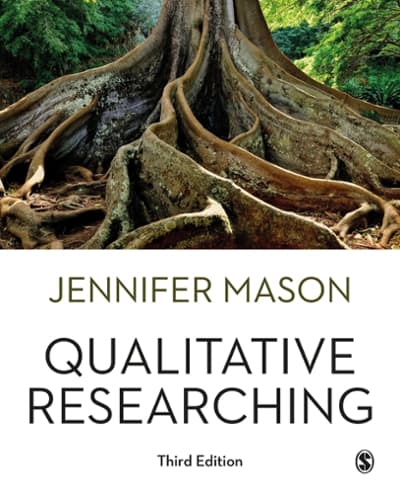Question
Hello talented tutors, Could you help me with these questions? Based on the knowledge of these 3 psychological adjustments, I chose the 3rd adjustment to
Hello talented tutors,
Could you help me with these questions?
Based on the knowledge of these 3 psychological adjustments, I chose the 3rd adjustment to present to the class. Can you help me create a paragraph about the biological and psychological aspects of later adulthood? Can you help me come up with information and a story related to the 3rd adjustment I mentioned. This presentation will be given for 3 to 5 minutes.
Theoretical Concepts about Developmental Tasks in Later Adulthood In this section, we will examine various theoretical concepts relating to the developmental tasks of later adulthood.
Integrity versus Despair The final stage of life, according to Erikson (1963), involves the psychological crisis of integrity versus despair. The attainment of integrity comes only after considerable reflection about the meaning of one's life. Integrity refers to an ability to accept the facts of one's life and to face death without great fear. Older people who have achieved a sense of integrity view their past in an existential light. They have feelings of having achieved respected positions during their lifetimes and have inner senses of completion. They accept all of the events that have happened to them, without trying to deny some unpleasant facts or to overemphasize others. Integrity involves an integration of one's past history with one's present circumstances, and a feeling of being content with the outcome. In order to experience integrity, older people must incorporate lifelong sequences of failures, conflicts, and disappointments into their self-images. This process is made more difficult by the fact that the role of older people is devalued in our society. There are a lot of negative attitudes expressed in our society that (often erroneously) suggest older people are incompetent, dependent, and old-fashioned. The death of close friends and relatives and the gradual deterioration of physical health make it additionally difficult for older people to achieve integrity.
The opposite pole of integrity is despair. Despair is characterized by a feeling of regret about one's past and includes a continuously nagging desire to have done things differently. Despair makes an attitude of calm acceptance of death impossible, as those who despair view their lives as incomplete and unfulfilled. Either they seek death as a way of ending a miserable existence, or they desperately fear death because it makes any hope of compensating for past failures impossible. Some older people who despair commit suicide.
Men, particularly older men, are more apt to commit suicide than are women (Papalia & Martorell, 2015). The highest rate of suicide is found not among male adolescents or male young adults, but among older men (Papalia & Martorell, 2015). One of the reasons the suicide rate among older men is so high is that men are more apt than women to view their chosen career as providing the primary source of meaning in life; when men with this perspective retire, they are more apt to despair and to select suicide as a way to end their misery.
Three Key Psychological Adjustments Peck (1968) suggests that three primary psychological adjustments must be made in order to make later adulthood meaningful and gratifying. The first adjustment involves shifting from a work-role preoccupation to self-differentiation. Because retirement is a crucial shift in one's life, a new role must be acquired. The older person has to adjust to the fact that she or he will no longer go to work and needs to find a new identity and new interests. People who are in the process of making this adjustment must spend time assessing their personal worth. (A woman whose major work has been being a wife and a mother faces this adjustment when her children leave home or her husband dies.) A crucial question to resolve at this point is, "Am I a worthwhile person insofar as I can do a full-time job or can I be worthwhile in other different ways ... ?" (Peck, 1968, p. 90). In making this adjustment, people need to recognize that they are richer and more diverse than the sum of their tasks at work.
A second adjustment involves shifting from body preoccupation to body transcendence. Health problems increase for older people, and energy levels decrease. One's physical appearance also shows signs of aging, such as graying and thinning of hair and increasing wrinkles. Many older people become preoccupied with their state of health and their appearance. Others, however, transcend these concerns and are able to enjoy life despite declining health. Those who accomplish this transcendence have generally learned to define comfort and happiness in terms of satisfying social relationships or creative mental activities.
I choose the 3rd adjustment
The third adjustment involves shifting from self-preoccupation to self-transcendence. The inevitability of death must be dealt with. Although death is a depressing prospect, Peck (1968) indicates that a positive acceptance can be achieved by shifting one's concerns from "poor me" to "What can I do to make life more meaningful, secure, or happier for those who will survive me?"
Step by Step Solution
There are 3 Steps involved in it
Step: 1

Get Instant Access to Expert-Tailored Solutions
See step-by-step solutions with expert insights and AI powered tools for academic success
Step: 2

Step: 3

Ace Your Homework with AI
Get the answers you need in no time with our AI-driven, step-by-step assistance
Get Started


